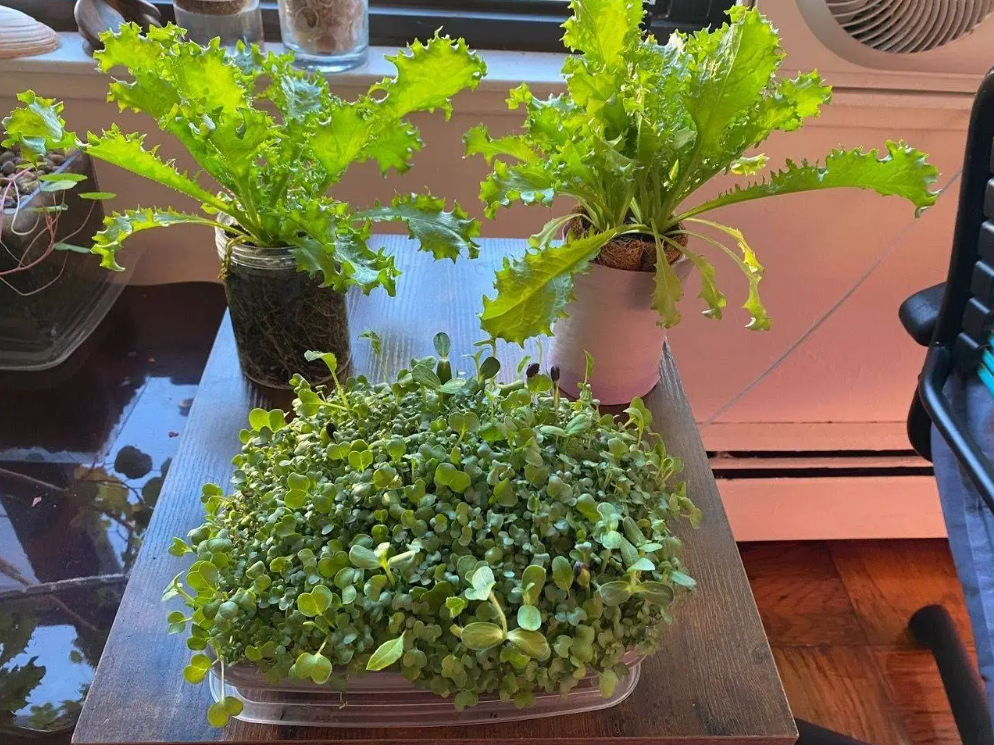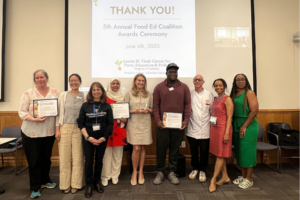By Jackson Ferrari Ibelle | Published May 20, 2021 in BK Reader
With food insecurity reaching staggering heights as a result of the COVID-19 pandemic, Teens For Food Justice (TFFJ), a nonprofit aimed at eradicating food insecurity in one generation, has provided city youth living in food deserts with the tools to grow their own fresh produce.
The organization, founded in 2013, sent nearly 450 students citywide home with hydroponic growing kits, allowing them to sprout microgreens and lettuce from the safety of their homes.
Hydroponics, a method of farming that grows plants without using soil, allows farmers to grow produce in urban settings, at any time of the year.
This program is important now more than ever.
“Everything about the COVID pandemic has underscored the relationship between poor health and food insecurity in our communities of color,” Katherine Soll, founder and CEO of TFFJ, told BK Reader.
“All you have to do is look at the COVID morbidity rates and the co-morbidity rates between diseases such as diabetes and heart disease that are directly linked to lack of access to healthy food.”
Farming in school heads home
Prior to the pandemic, TFFJ had four indoor hydroponic farms capable of producing up to 12,000 pounds of fresh produce each year set up at title one schools across the city, including at Brownsville Collaborative Middle School and Urban Assembly Unison School in Bed-Stuy. Students ages 12-18 were then given the opportunity to learn farming techniques as part of their curriculum. In turn, the fresh produce was served daily in the schools’ cafeterias.
TFFJ also hosted weekly after school programs focused on health and nutrition, as well as analyzing the policies that have led to a broken food system.
When schools shut down due to COVID-19, TFFJ harvested and distributed over 1,000 pounds of food from their farms into neighboring communities. The organization continued to distribute food throughout the summer, but as the school year approached in the fall, a new plan was needed.
In came the at-home grow kits through a new after-school program called Food Justice Collective, which is open to all students not just those at schools with TFFJ farms.
“I attended one of the first lessons that we did and what was amazing to me, was that every single student’s camera was on. Every kid was so excited with so many questions,” Soll said.
“To me that really speaks to the importance of this, particularly in a time when kids are so disconnected from each other and from the day to day hands on learning experience.”
Empowering youth to find solutions
For Michelle Cao, a senior at Brooklyn Technical High School who became involved with TFFJ in the fall, hydroponic farming helped her explore a budding passion for food justice. “While finding a way to feed everyone is important, unpacking and being able to find solutions to systemic problems is also very important,” she said.
Cao grew basil and microgreens in her Brooklyn home, while participating in the program’s leadership committee. Her experience with the TFFJ has even made her consider farming and hydroponic systems as a future career.
“Going forward I hope to stay involved, whether it is with TFFJ or other programs, in being able to be a voice for food advocacy and justice,” she said.
That level of youth empowerment is exactly what TFFJ is reaching for, Soll said. “What connects the kids to the program is the agency they feel around mastering this new technology and being able to think through how it can enable them to be the change makers in the future around the inequities that they live with every single day.”
While the organization will continue to offer remote programming going forward, the farms will reopen in person in the fall. A fifth farm will also be opening in Far Rockaway.
Find the original article here in BK Reader.







